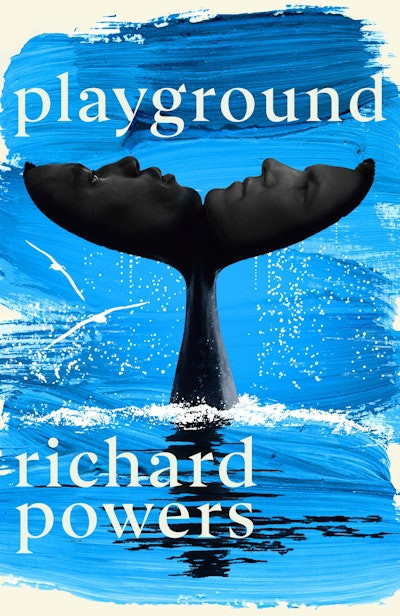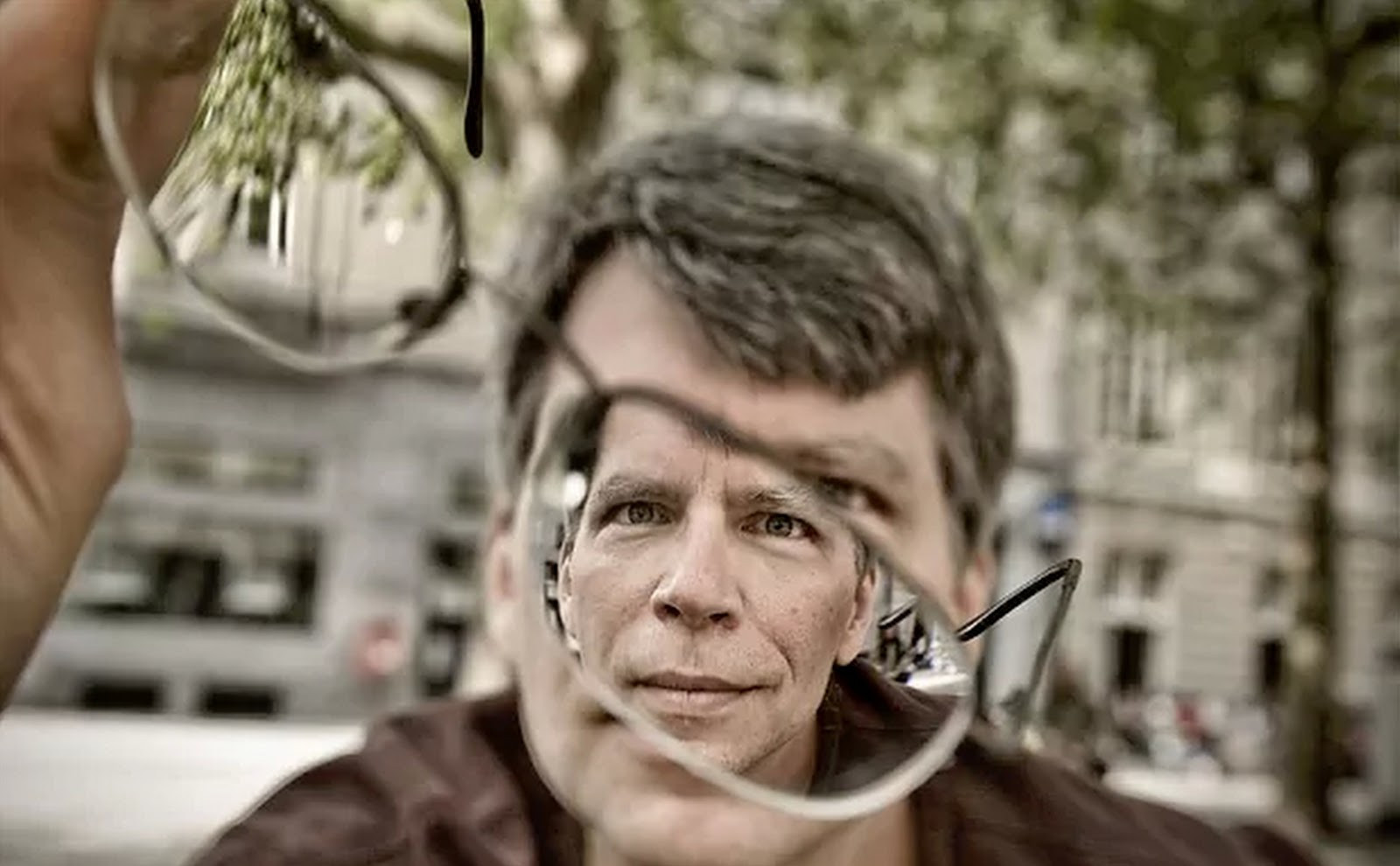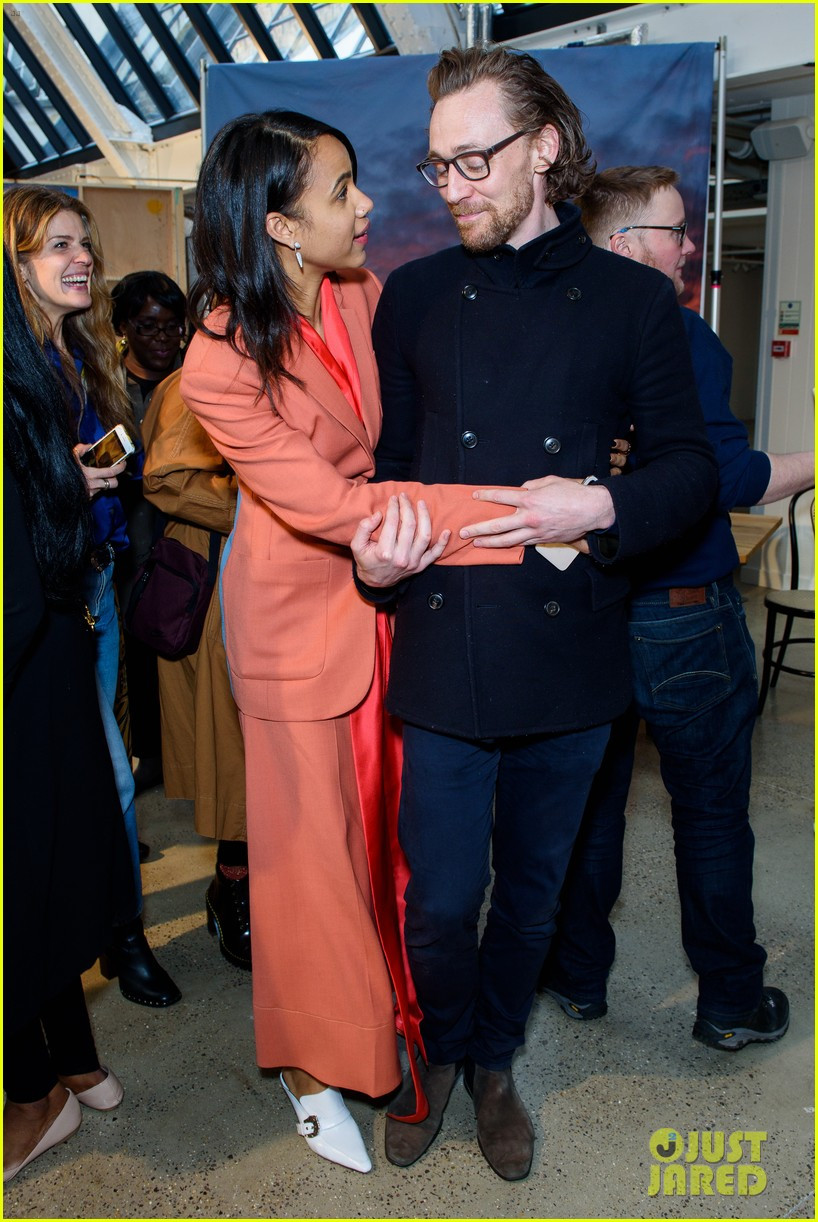The Pulitzer-winning author of The Overstory on how ocean life inspired his latest novel – and why we need to rewrite our relationship with nature
Richard Powers was around 10 years old when his sister Peggy gave him what he now describes as a very unusual birthday present “for a kid in the northern suburbs of a midwestern city”: a book on coral reefs. But it was a revelatory choice, sparking in the novelist an explosion of curiosity and joy that has come to creative fruition over half a century later in his 14th novel, Playground. “I just thought, the world is actually huge and mysterious and ancient and out there, and I can’t get to it,” he tells me from his home in the Smoky Mountains, where he is surrounded by forest in every direction as far as the eye can see.
In the event, he didn’t have to wait that long to access the ocean for real – the following year, the family followed his father’s job as a school principal from Chicago to Bangkok, and Powers found himself scuba diving and snorkelling in the coral reefs of the South China Sea. Until the family moved back to the States six years later, Powers was convinced he would become, like one of Playground’s central characters, an oceanographer. That ambition gave way to physics and computer programming before, in 1985, he published his first novel, Three Farmers on Their Way to a Dance. But the persistence of his many enthusiasms is evident in his fiction, from the mixture of music and DNA in 1991’s The Gold Bug Variations to the Pygmalion-inflected story of artificial intelligence in 1995’s Galatea 2.2 to the ecological and environmental concerns of his most recent novels, The Overstory and Bewilderment.
His new novel is dedicated to his sister, who died in 2022. In common with the acclaimed and Pulitzer prize-winning The Overstory, which related several characters’ stories in the context of trees, their habitats and their precarious future, Playground plunges us into the complex and frequently unfamiliar world of the ocean with a radical purpose: forest and ocean are not merely backdrop but a way of decentring the human, of insisting that if fiction limits itself to an anthropocentric universe, it severely limits its potential.
The Emotional Core of Playground
I ask him first how the loss of his sister affected the process of writing Playground, which despite its immense intellectual heft, has a strikingly emotional, elegiac tone. Did the book feel very personal to him? “It did. And to set the story up through a narrator who’s losing his cognitive abilities, who’s losing his ability to speak and to remember” – another of his main characters is involved in the highest levels of AI technology, and has also recently been diagnosed with Lewy body dementia – “I think infuses the book with that sense of the vanishing past, which of course is a kind of microcosmic metaphor for the vanishing past that we’re all living in.”
He pauses, and considers for a moment. “It’s a very interesting question, and I hate to do psychoanalysis in front of you in real time. But you know, not only is there a sad element in so far as it was driven by remembering Peg, but there is a weird, hopeful or playful element that comes from my remembering her too, because she was the most playful of people, and thinking about the experimental, open-ended, very joyful way in which she approached life made me remember various obsessions that I’d had at different times in my life.”
The Importance of Play
One of those obsessions is play itself. He recalls being “absolutely shocked” as a 21-year-old reading Dutch historian Johan Huizinga’s influential 1938 book Homo Ludens, which argued that play is older than civilisation. “And I thought, how could that possibly be? And then, of course, it became obvious: animals play, so it’s hundreds of millions of years older than civilisation, and it is the engine of evolution. Everything that we have done as human being beings has been predicated on this base of being able to create an imaginary magic circle, as Huizinga calls it, and playing out reality as a kind of projective, imaginative game. And that’s why this book has such a strange dual character to it. It’s a lament, but it’s also a kind of paean – a celebration of everything that we’ve come up with, and everything that life has come up with. And the game is not over yet.”
To talk in detail to Powers – and it’s hard to envisage any conversation with him that wouldn’t be detailed – is to feel oneself beckoned into a thicket of ideas with a generous, warm and endlessly patient guide. As we talk about the sea, and his choice to set much of his novel on the tiny island of Makatea in French Polynesia, under threat of development from “seasteading”, in which the world’s wealthiest seek to colonise the ocean with floating cities, I admit to him that I’ve always been slightly afraid of sea creatures.
The Marvel of Marine Life
“Right! Because there are kinds of life there that are absolutely Martian. How can something have fivefold symmetry, and how can something have eyes distributed all across its skin? How can something see with its skin?” His fictional marine biologist, Evie Beaulieu, is based in part on the real-life Sylvia Earle, now 89 and referred to in sea-circles as “Her Deepness”: “I loved trying to create this woman who could see the landscape of the undersea and love it in a way that the rest of us can’t. And try to make her a way of saying: even if we can’t go down there, we can’t live down there, even if it creeps us out, even if we can’t see more than 10 feet, it is the fastest track to astonishment, of awe and wonder that we should have every day of our lives.”
Early in the novel, the nonagenarian Evie encounters a giant manta ray while she is diving in the South Pacific, and reflects on having released herself from “the prohibition against anthropomorphism” – she has spent too many decades observing non-human species to give it much credence. For Powers, this is a key point, and he describes the way that the determination in the field of life sciences not to draw comparisons between human and non-human had the disastrous effect of “actually abetting human exceptionalism, this mindset that was convinced that somehow we were completely discontinuous with the rest of creation, that we were something that obeyed entirely different rules, and that had no correspondences with the living world beyond us”.
A Battle for Our Humanity
As Powers talks about the current political landscape, the threat of unhindered environmental disaster and the challenges that technological advances in the form of AI will pose to human consciousness, he expands his point: “We’re about to be hemmed in by both sides, from very, very old evolution and very, very new evolution. So [I wanted] to tell a story that’s basically saying, let’s go back to this place that was 4bn years old before life even came up on to land, let’s go back to this place that makes up 99% of the Earth’s biosphere, and let’s see if we can justify saying it’s a story about us.”
He calls to mind Donald Trump’s recent interview with Elon Musk, in which Trump brazenly advised against worrying about rising sea levels because they would simply provide more waterfront property. “In my head, the lightbulb was going on,” Powers remembers. “I have misunderstood the classic American political battle. Yes, it is a battle over patriarchy. Yes, it is a battle over white supremacy. But it is also, and maybe primarily, a battle over whether or not we human beings can call ourselves autonomous. The last gasp of Maga conservatism basically wants to say we should not be answerable to anything else, and we are not answerable to anything else. Do not worry about making a go of it in the world, we will press on with all our business and commerce and technology and make it work, and make the world answer to us.”
Can Fiction Make a Difference?
Given the bleakness of this, I probe him on whether and how fiction can make any difference. He puts the issue into the context of recent literary history, and his own commitment to a blend of social and political fiction with metaphysical inquiry – the question, explored by earlier writers such as Herman Melville and Joseph Conrad, of our own place in the world. “Are we legitimate? Is what we want defensible, and can we make it happen?”
Powers believes firmly that, rather than coming up with “another novel about who gets to marry who”, certain parts of the literary world have continued to explore those issues, perhaps most evidently in science fiction. “It’s interesting that literary fiction ghettoised science fiction for those very reasons, because literary fiction, for a long time, put its allegiance entirely in this programme of saying ‘we are unique and unparalleled and absolutely outside of everything else’, and that commitment to understanding the human as sui generis, as something separate and apart, that became so central to the programme [that it] created those kinds of artificial standards of excellence that made other ways of telling stories seem second rate somehow.”
He is humorously aware of some of the criticisms that have been made of his novels over the years. For the first 20 years of his career, he says, he was labelled as being “all head and no heart”, “just a thinking machine writing these stories that are basically just trying to put the fire hose of ideas on their readers”. He laughs. “You know, my problem was that, the way that most people would cry over the death of Little Nell, I’m crying over some metaphysical puzzle – but truly, I mean truly, weeping over things that a lot of people would look at and say, that’s just an abstract philosophical argument.”
Those criticisms have fallen away in recent years, in part, he thinks, because he has thought deeply about how to integrate ideas and emotion in his work, and the nature of fictional enjoyment, a journey he describes as “a long, twisty path of maturation, both as a writer and as a person, to realise how deep those pleasures really are and how profound they are”. The payoff has come not merely in numerous prize-listings and an increased readership, but from one-to-one moments, as when a former teaching colleague, a Shakespearean scholar, wrote to tell him he broke into uncontrollable weeping during Playground. “I thought, bingo! I’ve learned how to tell a story in a way that that makes this metaphysical puzzle of commensal, symbiotic interdependence that we depend on into the same kind of visceral question that people love to read Jane Austen for: what is love and how do we find it in this world?”
The Play Never Ends
Powers is now 67 and gives the distinct impression that he’s nowhere near done with finding new stories to tell and new ways to tell them. As a young man, he remembers wondering what his life would be like if he continued to study maths and physics – but also noticing that many practitioners of those disciplines peaked in their 20s. He looked at literature and saw people continuing to produce throughout their lives and achieve great creative success in their 50s. And he thought: “Wouldn’t it be great to say, I’m really reaching my prime here at a half century?” He smiles broadly. “And now I’m 17 years past that, and everything is the bonus round. There’s no one alive who I still need to prove anything to, and I feel a kind of satisfaction in what I’ve accomplished, especially in these last three books, that I never expected to feel. So everything else from here on is just like evolution itself, pure, unmitigated play. And I no longer have to save the world. All I have to do is keep playing.”
Another book that had a huge impact on him is James Carse’s Finite and Infinite Games. “He says a finite game is played to be won; an infinite game is played to keep playing. And evolution is an infinite game. Culture should be an infinite game. And I know now for me that writing is an infinite game. It’s not that I’m done. It’s not that I’m beginning. It’s just that I’m in the game.”
Playground is published by Hutchinson Heinemann on 26 September. To support the Guardian and Observer, order your copy at guardianbookshop.com. Delivery charges may apply.
Playground: A Review
Richard Powers has long been fascinated by artificial intelligence. As far back as 1995, his novel “Galatea 2.2” reimagined the Pygmalion story through that lens, unfolding in a computer lab at the University of Illinois Urbana-Champaign, where the author studied as an undergraduate and went on to teach. “Plowing the Dark” (2000) presents a twinned narrative: The first involves an American hostage in Lebanon who uses recollection to preserve his sanity and the second, a group of researchers attempting to create an immersive virtual environment in three-dimensional space.
In both, the stakes couldn’t be higher: the relationship between memory and imagination, the endlessly regenerative possibilities of the human mind and the challenges (or even outright risks) of technology. “Playground,” Powers’ latest novel, occupies a related territory, moving back and forth between environmental and digital concerns, between the troubled ecosystem of the oceans and the fraught ethics and dislocations of the virtual world. And why not? Powers’ books, after all, often read as installments in an extended suite of narratives, circling back on one another in a slipstream of ideas and reference points.
A piece of “Playground,” like “Galatea 2.2,” takes place at Urbana-Champaign; like “Plowing the Dark,” the novel relies on a braided structure, with one thread focusing on the French Polynesian island of Makatea and the other told in the voice of Todd Keane, an AI pioneer whose project Playground — think Facebook crossed with ChatGPT and Google but refracted through a gamer’s sensibility — has made him a billionaire. At its center, however, “Playground” presents a set of overlapping love stories, requited or otherwise, involving parents and children, friends and most essentially humanity and the oceans we have both studied and soiled.
“The course of civilization is carved in currents,” Powers observes. “Where sea layers mix, where rains travel or wastelands spread, where great upwellings bring deep, cold, nutrient-rich waters to the energy-bathed surface and fish go mad with fecundity, where soils turn fertile or anemic, where temperatures turn habitable or harsh, where trade routes flourish or fail: all this the global ocean engine determines.”
The epic sensibility of this passage echoes Powers’ 2018 Pulitzer Prize-winning “The Overstory.” Both that book and “Playground” are what we might call systems novels, a term coined in 1987 by the critic Tom LeClair to describe fiction trafficking in social, political or global networks.
Because of its scope (or its success, perhaps), “The Overstory” has come to cast a vivid shadow over Powers’ body of work. Moving fluidly through the lives of nine characters, it zeroes in on the Pacific Northwest timber wars of the 1990s, a flashpoint of resistance that allows the author to address the interdependence of humanity and the biosphere. “Playground,” then, might be read as an extrapolation in which it is not forests (the so-called lungs of the planet) but oceans (let’s call them Earth’s circulatory system) that are at risk.
Think of “Playground,” perhaps, as “The Understory.”
Initially, the novel is exhilarating. Powers is a vivid writer, and it can be intoxicating to get lost in his words. “For centuries, my ancestors kept hundreds of islands spread across several thousands of miles of ocean in song-maps stored in their heads,” a Makatea artist named Ina Aroita explains. “All those islands and the paths of all the stars and the swirls of hundreds of currents and the behaviors and migrations of every sea creature. … Now all those maps are gone, and my generation of islanders are wandering around on the beach in a daze, concussed by history.”
What Ina is describing is folk knowledge, soul knowledge, from which we are all now alienated, but the brilliance of the passage resides in how the language, the lushness of it, embodies what it describes. Ina, after all, has been concussed herself, moving from Makatea to Urbana, where she meets Todd and his best friend Rafi.
The men make strange bedfellows, the former a white kid from the well-to-do Chicago suburb of Evanston, Ill., the latter Black, raised on the city’s Near South Side. What connects them is a love of games: first chess, and then, consumingly, Go, the ancient Chinese pastime characterized by its almost infinite choices and outcomes. For Powers, these endeavors offer a portal to a new sort of potential, less regenerative than exponential.
As “Playground” develops, however, it becomes increasingly mired in its polarities. On the one hand, there are the apparently unbounded capabilities of tech, which might even (or so Rafi believes) restore us from death. On the other, the tunnel vision of the tech creators, which more often than not yields to exploitation. That’s a rich binary, the kind Powers has previously explored with nuance. But here the exploration never quite comes to full three-dimensional life. Even in Rafi’s relationship with Todd, which is destroyed in part by Big Tech’s corrupting influence, Powers remains oddly neutral, even distanced.
A similar distance emerges in regard to Makatea, an island strip-mined for phosphate until the 1960s, after which it was mostly abandoned until a shadowy group of Californians proposes reindustrializing it in the service of “seasteading,” a form of eco-colonialism in which modular floating settlements are constructed and then launched into the ocean. The island’s 82 residents, including Ina and Rafi (whom she has married) put the matter up for a vote. Arguments are made, and a decision rendered. Yet the ethical implications — both of the effect on the island and its culture and of the environmental impact of seasteading itself — remain moot.
I don’t mean to suggest that there are easy answers to these polarities, or that Powers has to provide any answer at all. As he recognizes, consequences are always unintended and there’s no way to predict an outcome (the world as an augmented reality version of Go).
Perhaps the most vivid representative of this elusive unpredictability is Evelyne Beaulieu, a 92-year-old French Canadian marine biologist who has washed up on Makatea to finish her stay on Earth as she began it, in conversation with the deep.
Evelyne is slipping. Time has its hooks in her. “Memory,” she insists, “should be vise-like in youth when the emerging navigator needed it most. But no one ever survived into old age who couldn’t open that vise and let much of their hard-gripped facts go free.” It’s not only Evelyne who is losing herself; half a world away, Todd faces the same hard truth, stricken at 57 with Lewy body dementia. The connection (intended, certainly, for Powers is nothing if not intentional) is that Evelyne’s first book, a primer titled “Clearly It Is Ocean,” was an early influence on Todd’s thinking about networks, after he read it as a boy.
Here, we glimpse how woven “Playground” is, with coincidence or serendipity as its own sort of network interlaced beneath the surface, not unlike the teeming currents of the sea. Still — and as opposed to, say, “Plowing the Dark” or “The Overstory” — it is oddly unsatisfying, or maybe “predetermined” or “calculated” is the better word. The collapse of Todd and Rafi’s friendship may be inevitable, but it feels like a narrative conceit rather than an emotional necessity. So too, Evelyne, who comes to an end that may be coherent with the novel’s structure but seems ungrounded in actuality.
“Games now ruled humanity,” Powers writes. “… And it made perfect sense … that the machines that would doom us cut their teeth by watching humans play.” All the same, the novel, like every virtual reality machine, must be a reflection of the world, and in this sprawling parable of a book, which has been longlisted for the Booker Prize, that world and the humans in it read, too often, like manqués or archetypes, motivated by the author’s — or the player’s — hand rather than an organic urgency of their own.


















